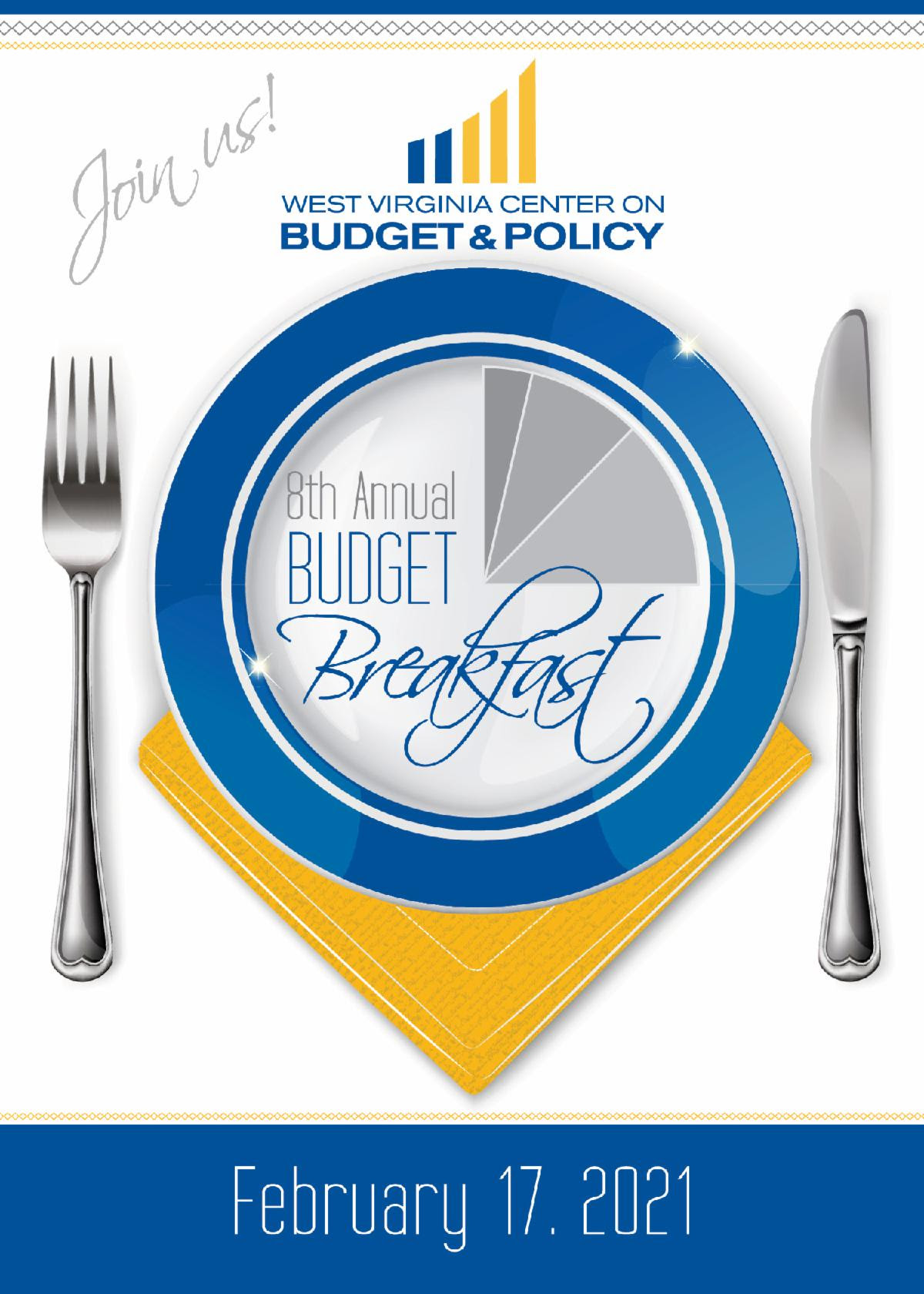In March, the federal government passed the Coronavirus Aid, Relief, and Economic Security (CARES) Act, which established several programs that have since proved critical for stabilizing the economy amid the COVID-19 pandemic. The CARES Act’s remaining provisions will expire on December 31, leaving Americans anxiously awaiting Congress’s next economic relief package. But with no precise congressional vision in sight, it is plausible that Americans will soon find it even more difficult to make ends meet as the federal government relief that has mitigated hardship over the past nine months comes to an end.
West Virginia, a high-poverty state, is particularly precarious as the end of the year swiftly approaches. While Americans across the nation would benefit from extended relief, residents of West Virginia and other states with elevated poverty levels are in particular need of aid. The remainder of this blog post dives into how three expiring CARES Act provisions have uniquely impacted West Virginia.
Read Rhonda’s full blog post.
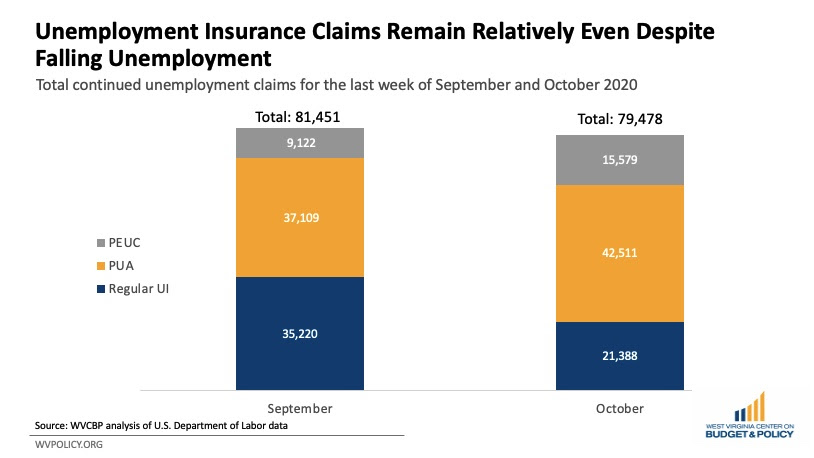
Across the state, families are facing increased hardship as the federal stimulus expires and winter sets in. Many West Virginia households are at risk of having their utilities shut off due to inability to pay their bills.
Governor Justice has the ability to prevent these shutoffs by extending utility relief and allowing households to apply for relief funds to cover August – December bills. What’s more, he has $800 million remaining in CARES Act funds that must be spent down before the end of the year, or else be returned to the federal government. Rather than go to waste, these funds should be used as intended to aid our state’s people.
Help us keep the lights on and the water running in our communities’ homes. Please join us in calling Gov. Justice and urging him to extend utility relief at 304-558-2000.
Take additional action today and join 30+ organizations urging Governor Justice to support the People’s Proposal to help West Virginians by providing rental and utility assistance, support for child care centers and parents with child care needs, increased payments to unemployed workers, food and transportation assistance, and more. You can send a letter here.
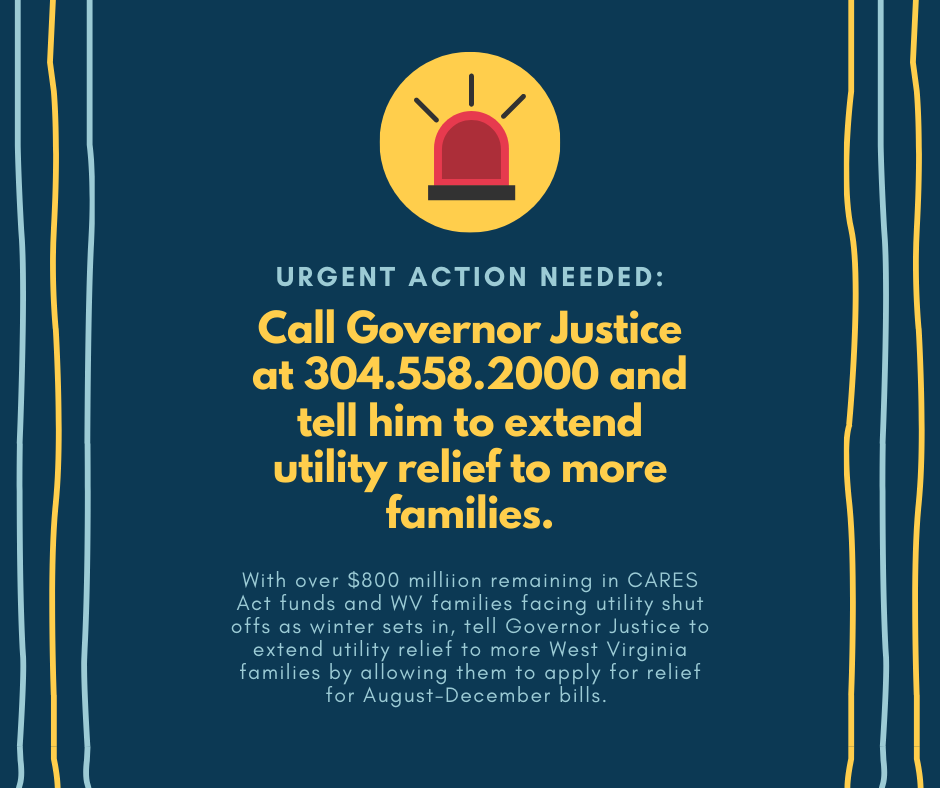
As the pandemic rages on, our communities across the country continue to reel. If Congress doesn’t act soon, many COVID relief programs will expire, including unemployment benefits, paid leave, and eviction protections, which would only further exacerbate existing hardship.
Join the nationwide effort to hold Congress accountable by calling your senator today and telling them that relief can’t wait. You can call 1-888-754-9091 or text RELIEFNOW to 747464 to be connected with your senator.
Check out what our policy outreach director Seth DiStefano had to say about the importance of ongoing aid in a recent West Virginia Tonight interview here.
Read more about hardship in the Ohio River Valley that a second federal relief package could help mitigate here.
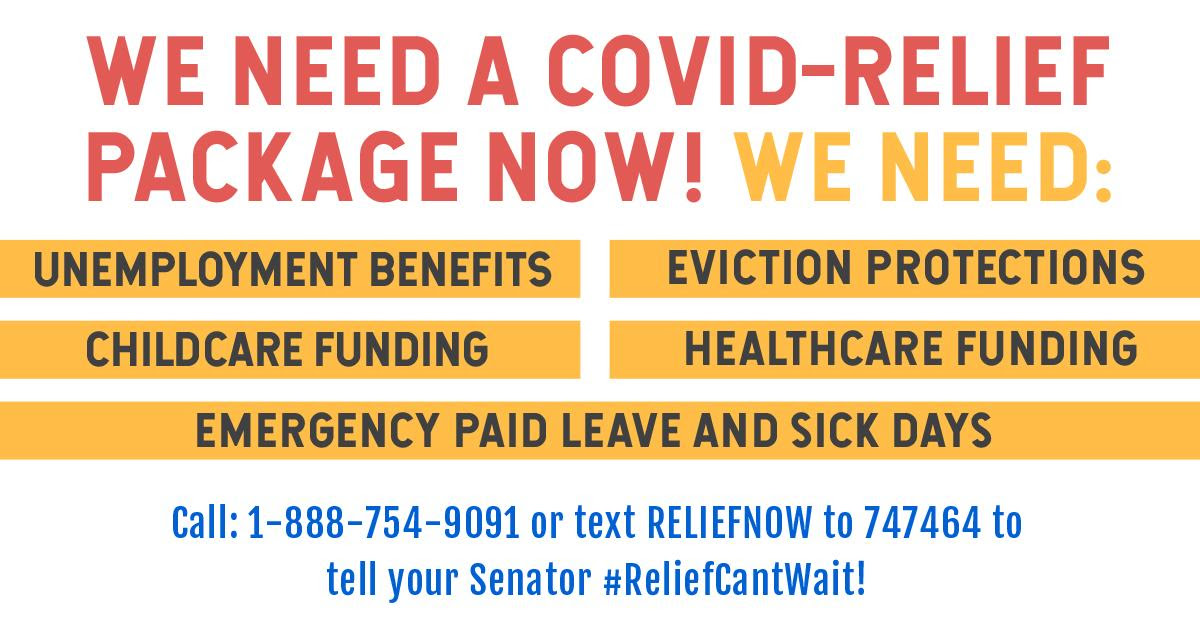
Save the dates!
The West Virginia Criminal Justice Reform Summit, being held Jan. 27 – 30, will explore the system from start to finish, from pre-arrest to re-entry. Through informative speaker sessions, the summit will engage directly impacted people and a variety of other experts to explore the connections between poverty and the criminal legal system. The summit will also offer skill-building workshops on how we advance nonpartisan policies to reduce mass incarceration and promote public safety.
This summit is being hosted by the West Virginia Criminal Law Reform Coalition, of which WVCBP is a proud member.
Check out the Facebook event for further details and registration to come.
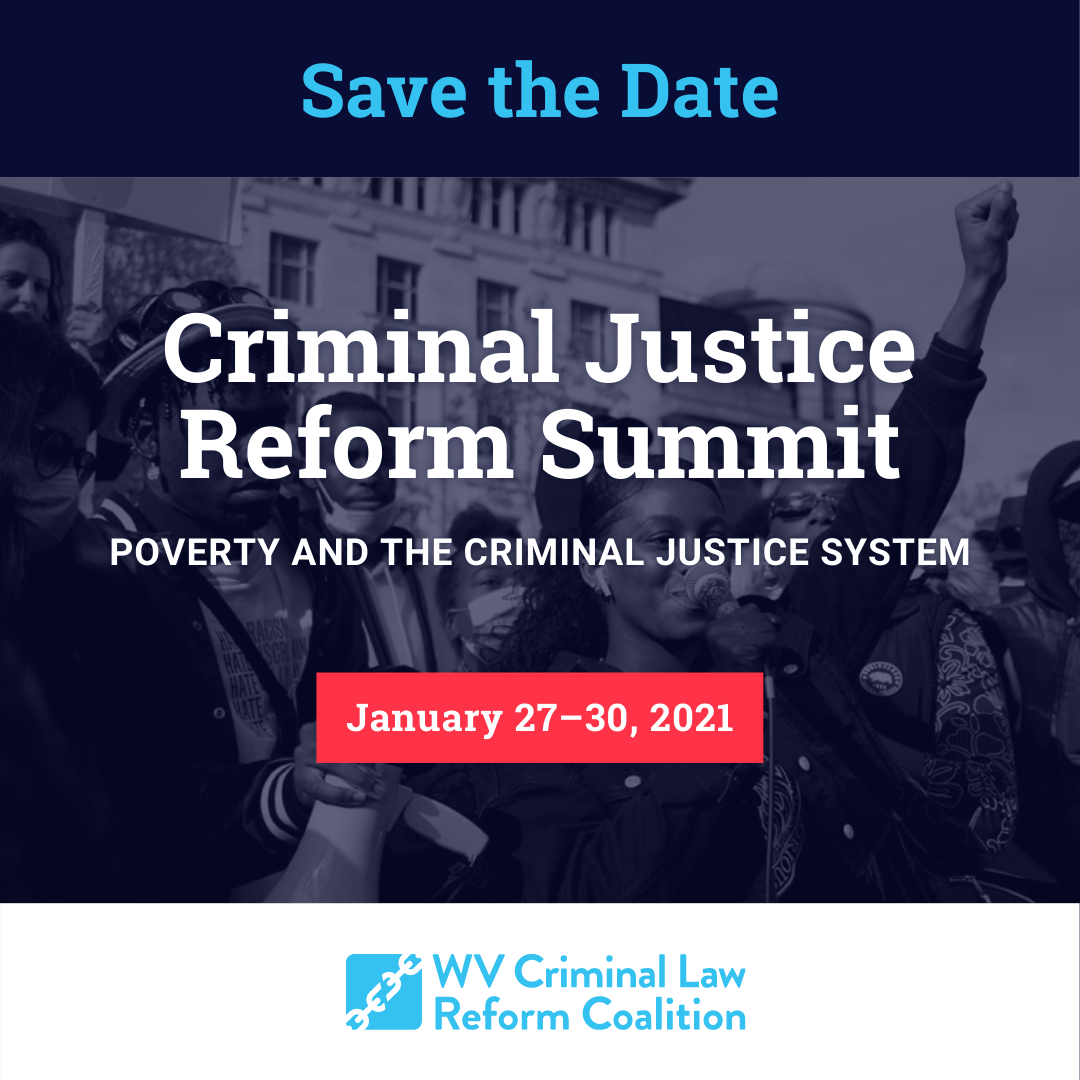
Join us for our 8th annual Budget Breakfast!
Due to COVID-19 considerations, this year’s event will be held virtually via Zoom.
WVCBP’s analysis of the Governor’s 2022 proposed budget will start at 8:00am, followed by keynote speaker presentation and time for Q&A.
While attendees are welcome to join the webinar at no cost, we hope you will consider supporting the WVCBP’s work and contributing to our annual fundraiser by donating the usual cost of an in-person ticket ($40 before the end of year or $50 beginning Jan. 1, 2021).
Register here.
We hope to see you there!
